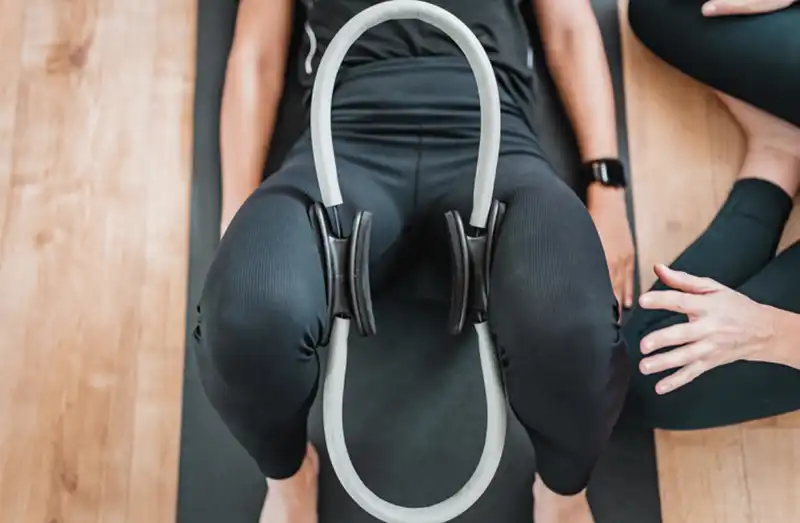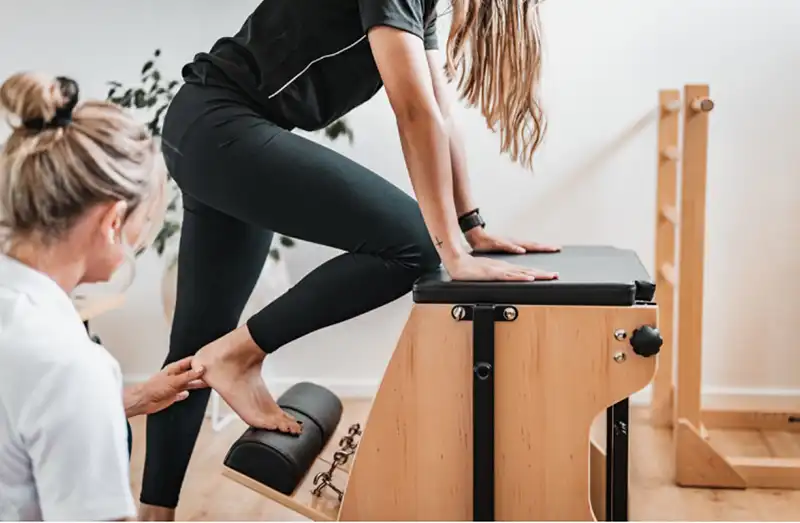Pilates & Co
Clinical Pilates is a method of exercise, used for rehabilitation after injury or surgery, and aims to provide a more individualised approach to treatment.




Pilates & Co
Clinical Pilates is a method of exercise used for rehabilitation after injury or surgery. Some of the benefits of Clinical Pilates include improvements in: posture, flexibility, muscle strength, control, balance and core and pelvic floor strengthening.
Unlike a regular Pilates class where participants will all perform the same general program, Clinical Pilates aims to provide a more individualised approach to your treatment and goals. Before you begin, you will have a detailed assessment by our principal Podiatrist / Pilates Instructors. Based on this assessment we will develop an individualised program to suit your level and ability. Therefore, reducing the risk of aggravation and re-injury. This may involve a mix of mat work as well as exercises using Pilates equipment (Reformer, Trapeze Table, Wunda Chair).
Why You Should Consider Clinical Pilates:
- Improved Posture
- Enhanced Core Stability
- Injury Rehabilitation and Prevention
- Increased Flexibility and Joint Health
- Customized to Individual Needs
- Enhanced Breathing Control
- Reduction in Chronic Pain
Book an Appointment with Us
View our profile on Healthengine.com.au
General Questions
Here you may find answers to questions some of our clients have asked before? If you have additional questions, don’t hesitate to reach out to us, we’ll be glad to assist.
Absolutely. The feet are an integral part of movement, and often, foot, ankle, knee and Hip pathology all go together. Clinical Pilates can be an effective way to treat musculoskeletal conditions , chronic pain, as well as reduce the incidence of re-injury.
Clinical Pilates can target and strengthen the muscles around your your feet, ankles, knees and Hips, as well as your lower back, abdominal muscles and glutes. Strengthening is a key component in supporting the spine and also reducing back pain. Clinical Pilates will also aim to address any deficits in spinal mobility and muscle length to improve your flexibility and movement in these areas. Improved strength and mobility in these areas helps to take the pressure of the joints and overactive muscles allowing you to get on with the things you enjoy.
Yes, Clinical Pilates is a safe and effective way to exercise whilst pregnant. All our supine (lying on back) reformer exercises are modified after the first trimester (sometimes earlier) onto a sitting incline wedge so that you won’t be on your back. Clinical Pilates allows you to continue exercising throughout your pregnancy by avoiding exercises that would risk or cause harm to you or your baby.
Yes, Clinical Pilates can strengthen your pelvic floor through targeted exercises over a number of weeks. This is particularly important during and after pregnancy to maintain the strength in the pelvis and to help prevent injury. Others, with incontinence related to a weakening of the pelvic floor may also benefit from a pelvic floor strengthening program.
Posture may be affected by muscle strength, length, mobility and also structural changes to the spine. Postural overload from being in a position for a prolonged period, such as desk work, often is the driver of a person’s symptoms rather than the posture itself. Clinical Pilates will provide you with the tools to make your body more resilient, stronger and mobile. An important part of this change will involve incorporating some of these lessons into your day to day life.
